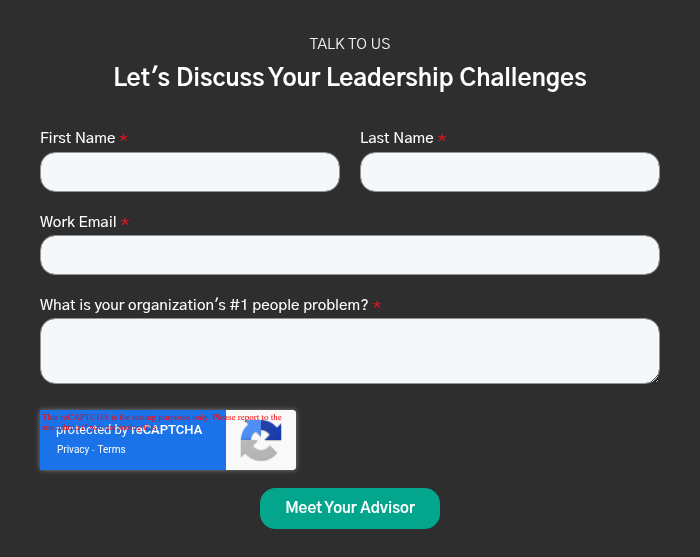The Accountability System™ With The Metiss Group Coaching Philosophy
August 30th, 2024
5 min read
By Cyndi Gave

Imagine stepping into a new management role, eager to lead your team to success. The challenges of guiding a new employee can be significant, but with the right support, your new employee can shorten the learning curve and thrive. The problem is finding the right way to support the employee, at the right time, with the right tools.
At The Metiss Group, we’ve been growing leaders and amplifying team success for over 28 years. In that time, we’ve actually built our own proprietary system used with dozens of teams. Typically, clients see significant boosts in employee engagement, buy-in, and productivity.
The Accountability System™ is especially designed to accelerate onboarding with new hires, workers who are promoted, or migrating to an entirely new role.
In this article, we will walk you through what the journey looks like, how it benefits you, how it benefits your new direct report, and show you the path to rapid success. Throughout, we will look at this concept through the lens of Beth, a new manager, and Charles, her recently hired team member in a hypothetical scenario.
The Journey Begins: Setting the Stage for Leadership and Growth
Recognizing the importance of effective leadership, Beth sought guidance to ensure she could support Charles in the best possible way.
From the beginning, The Metiss Group emphasized a collaborative approach, involving Beth, Charles, and a coach working together. This three-pronged strategy was designed to align goals, set clear expectations, and establish a foundation of trust and communication.
In Month Zero, the groundwork was laid with a focus on self-discovery. Charles and Beth underwent two key assessments, DISC and Workplace Motivators, and Charles’ job scorecard was created.
These assessments provided a comprehensive understanding of his strengths, motivators, and areas for development. This approach is backed by research demonstrating self-awareness is a critical component of effective leadership and personal development.
According to a study published in Harvard Business Review, leaders who possess a high degree of self-awareness are better equipped to understand their own behaviors and how they impact others, which leads to more effective management and stronger team dynamics.
Furthermore, using tools like the DISC and Workplace Motivators helps in identifying individual behavioral styles and intrinsic motivations, which are essential for personalizing development plans and aligning them with organizational goals.
Beth, as his supervisor, was equally engaged from the start. The coach worked closely with her to ensure Charles’ scorecard, outlining his key responsibilities and performance metrics, was aligned with the company's objectives.
This scorecard wasn't just a checklist; it was a living document that evolved with Charles’ role and was regularly reviewed to ensure it remained relevant, and his success could be tracked.
Months One and Two: Individual Coaching for Growth
The first two months were dedicated to one-on-one coaching sessions between Charles and the coach.
These sessions were designed to help Charles understand the feedback from his assessments, set realistic goals, and create an Individual Development Plan (IDP).
However, this process wasn't solely about Charles’ growth; Beth was also coached on how to best support his development, ensuring she had the tools and strategies needed to guide him effectively.
During these sessions, the coach focused on empowering Charles to take ownership of his role while providing Beth with the guidance needed to foster a supportive environment.
The goal was to create a dynamic where Charles felt confident in his abilities, and Beth felt equipped to provide course corrections and support.
Research supports this dual approach, indicating employee empowerment is closely linked to higher job satisfaction, increased motivation, and improved performance.
According to a study published in the Journal of Applied Psychology, when employees are empowered to make decisions and take responsibility for their roles, they exhibit greater engagement and productivity.
Additionally, providing managers like Beth with the tools and training to offer course correction has been shown to enhance team effectiveness and improve overall organizational performance.
A report from The Center for Creative Leadership highlights coaching managers on how to deliver feedback effectively not only strengthens the manager-employee relationship but also fosters a culture of continuous improvement and learning within the organization.
This evidence-based approach ensures both Beth and Charles are not just performing their roles but excelling in them.
Quarterly Reviews: A Collaborative Approach to Development
At the end of the third month, the coach met with both Beth and Charles for their first quarterly review. This meeting was a critical touchpoint where the progress made so far was assessed, the scorecard was reviewed, and any necessary adjustments were made.
This collaborative approach ensured both Charles and Beth were aligned and any potential challenges were addressed early on.
It is important to note, the coach did not tell either Beth or Charles what to do. Instead, through collaboration, both Charles and Beth discovered the ideal way to communicate with each other using the results from their assessments as the compass. This allowed them to improve their communication and keep the plan on track.
These quarterly reviews were repeated at the six-month, nine-month, and twelve-month marks, providing regular opportunities to reassess and realign goals.
The coach played a crucial role in facilitating these discussions, ensuring both Beth and Charles were engaged in the process and committed to continuous improvement.
The Role of the Coach: Guiding Both Beth and Charles
One of the unique aspects of The Accountability System™ with The Metiss Group is the dual focus on both the direct report and the supervisor. The coach wasn’t just there to support Charles; The Metiss Group coach was equally invested in ensuring Beth was equipped to lead effectively. The coach guided both parties on the best way to approach the other in healthy manners, being mindful and considerate of their individual audience styles.
This holistic approach meant coaching sessions often involved in-depth discussion around how Charles could better support Beth’s leadership, and how in turn, Beth could create an environment where Charles could thrive.
The Metiss Group coach followed The Accountability System™ framework and guided Beth in providing Charles feedback that was both constructive and empowering, helping balance the dynamic between them.
These sessions also delved into strategies for maintaining open lines of communication, which are essential for preventing misunderstandings and cultivating a collaborative atmosphere.
By setting clear expectations and aligning them with both Beth and Charles’ goals, The Metiss Group Coach helped create a framework cemented in accountability and mutual trust.
The impact of the coach’s involvement was profound: Charles gained confidence in his role, knowing his input was valued and his growth supported. Beth, on the other hand, discovered how to be a more effective leader by understanding how to nurture Charles’ potential while also receiving the feedback she needed to continue her own development as a leader.
The Metiss Group Coach’s dual focus ensured both Charles and Beth were exceeding their individual goals and working together to achieve mutual success.
Long-Term Success: Scorecard Accountability for 13 Months
The journey didn’t end after the initial coaching sessions. The Accountability System™ program included a 13-month framework, solidifying that the progress made during the coaching sessions was sustained over time.
This process included regular check-ins with both Beth and Charles, ongoing adjustments to the scorecard as needed, and continued support to ensure both were on track to meet their goals.
By the end of the 13 months, Charles had a clear understanding of his role and how to succeed in it, and he had developed a strong working relationship with Beth, underpinned by mutual trust and respect. Beth, in turn, felt confident in her ability to lead and support Charles, knowing she had the tools and strategies needed to help him thrive.
The Accountability System™ through The Metiss Group is more than just a development tool for new employees like Charles.
It’s a comprehensive, collaborative process, ensuring both the direct report and the supervisor are equipped to succeed.
By focusing on self-discovery, individualized coaching, and ongoing support, the program not only accelerates Charles’ growth but also empowers Beth to lead effectively.
The Bottom Line
If an employee's first year sets the stage for long-term success, then failing to prioritize this stage of development means you'll never become a dynamic duo with your direct reports.
Our approach empowers leaders with the ability to navigate challenges, foster strong relationships, and drive continuous improvement. Additionally. The Metiss Group’s program provides the direct report with a process-strengthening certainty in the role, accountability for tasks, and a proven path for future success. This ensures both leaders and their teams are positioned to thrive.
Now that you understand the power of The Accountability System™ at The Metiss Group, the next step is to set up a 15-minute phone call with an advisor. We'll discuss your people challenges and help you decide if our solutions would be a good fit.
Just fill out the form below to get started.

Topics:













